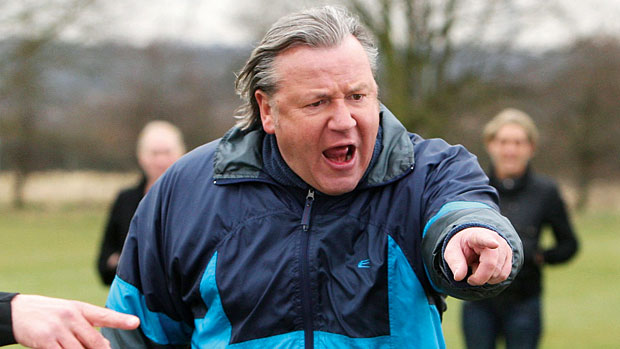Feed off crowd abuse
Has the opposition’s solitary fan singled you out for a verbal lashing? Don’t let it get to you thanks to advice from peak performance coach, Tom Bates

1 Criticism is a compliment
If you’re playing well then it’s inevitable that the opposition’s supporter will try to put you off. They see you as the player who carries the greatest threat, so you should see it as a positive reaction. They fear you – remind yourself of this fact and thrive off of it.
2 Drown the fan out
Weak characters make lots of negative noise. Instead of listening to insults, make your voice heard by shouting encouragement to team-mates. If he starts to distract you, assert yourself in five-minute bursts – close down twice as fast or make sure you win your headers.
3 A still tongue keeps a wise head
Do not react to anything that lonely fan says or does. As far as you’re concerned, they’re invisible. This will agitate them and eventually they’ll give up. Ask yourself: if you react, will that help or hinder your team? Will it give you energy or take it away? Remember: the best way to respond is by playing well.
4 Keep your team-mates out of it
If your team-mates start defending you, tell them to focus on the game. You could decide on some strategies: for example, the louder the fan gets, the more you encourage each other, and you fight hard until the final whistle, regardless of the score.
5 Hear your inner voice
If the fan’s abuse starts to affect your performance, focus on your inner voice and use three tools. Firstly, ‘snapback triggers’: tell yourself positive statements of intent, such as ‘I can score here’. Secondly, try employing one of these physical anchors to break attention: clap your hands, clench your fists or tackle hard but fair. Finally, don’t forget to breathe: inhale deeply and exhale to let go of stress and frustration.
For more psychology tips see:
Dealing with the red mist
How to deal with a mouthy player
How to bounce back from a mistake
Mikel Arteta's guide to mental toughness
How to deal with a wind-up merchant
Keep a cool head
Get FourFourTwo Newsletter
The best features, fun and footballing quizzes, straight to your inbox every week.
